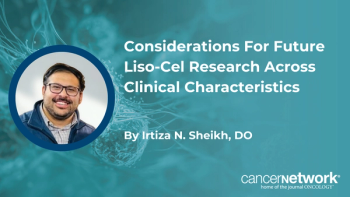
- ONCOLOGY Vol 13 No 9
- Volume 13
- Issue 9
Scientists Warn About Potential Misuse of Gene Therapy
Scientists fear that existing genetic techniques will be misused before the consequences of altering the human blueprint on personal, generational, and societal levels are fully realized. At St. Jude Children’s Research Hospital in Memphis, Tennessee,
Scientists fear that existing genetic techniques will be misused before the consequences of altering the human blueprint on personal, generational, and societal levels are fully realized. At St. Jude Childrens Research Hospital in Memphis, Tennessee, leading ethicists and genetic experts argued that our current ability to manipulate our genes brings with it an obligation to conduct a worldwide discourse, which has not occurred to date.
Sometimes, as a society, we see what we want to see in technology and fail to look at the down side, said W. French Anderson, MD, director of Gene Therapy Laboratories at the University of Southern California, School of Medicine. With something like genetic screening for cancer, the same technology that gives us the ability to eradicate deadly disease carries with it a great potential for misuse.
Misuse May Lead to Loss of Humanness
Dr. Anderson also discussed the difference between treatment (using genetic therapy to cure disease) and enhancement (using genetic therapy to create genetically superior humans). He cautioned that genetic engineering may alter our humanness.
Dr. Andersons colleague, Eric Juengst, PhD, associate professor of biomedical ethics at Case Western Reserve University School of Medicine and a member of the Committee on Human Genome Diversity of the National Research Council, warned that the problem with enhancement is that it corrupts an individuals ability to honestly achieve a goal.
We need to have fair competition in society, said Dr. Juengst. Getting top grades, or pole vaulting with pharmaceutical help is cheatingand exclusionary based on cost.
The countrys leading legal and theological experts and top cancer researchers convened recently to discuss these and other moral, ethical, religious, and scientific questions at the Ethical Boundaries in Cancer Genetics symposium hosted by St. Jude.
Articles in this issue
over 26 years ago
Lowering Drug Prices for Non-Medicare Patientsover 26 years ago
Paclitaxel Improves Survival in Metastatic Breast Cancerover 26 years ago
FDA Plans Crackdown on Online Drug Salesover 26 years ago
p53 Gene Therapy Shows Activity Against Head and Neck Cancerover 26 years ago
OTC Analgesic Gel Treats Oral Ulcers in Chemotherapy Patientsover 26 years ago
September Is Gynecologic Cancer Awareness Monthover 26 years ago
Improving the Chemotherapy Experienceover 26 years ago
Chemoradiation an Effective But Toxic Therapy for Colorectal Cancerover 26 years ago
Oncologists Likely to Get Small Medicare Increasesover 26 years ago
Global Progress: Breast Cancer MortalityNewsletter
Stay up to date on recent advances in the multidisciplinary approach to cancer.





































